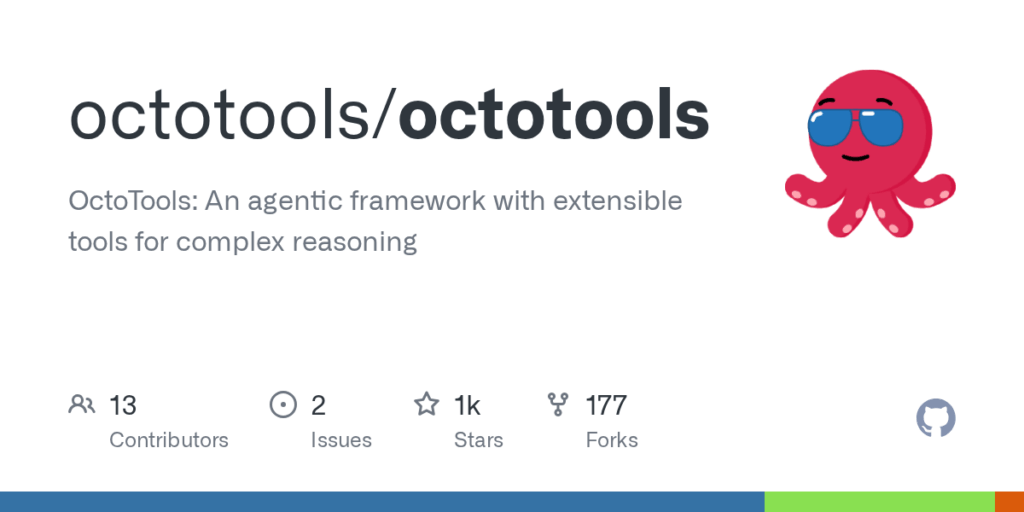octotools
Basic Information
OctoTools is an open-source, training-free agentic framework designed to solve complex multi-step reasoning tasks across diverse domains and modalities. It provides a modular system that combines standardized tool cards, a planner for both high-level and low-level reasoning, and an executor that generates and runs tool calls while recording structured intermediate results. The project is intended for researchers and developers who want to build, evaluate, and extend agent-based systems without retraining models. The repository includes example notebooks, benchmark tasks, test scripts for individual tools, installation instructions including a PyPI package, and reproducible benchmark scripts. The framework was evaluated on 16 benchmarks and reported measurable accuracy gains over strong baselines, demonstrating applicability to visual, numerical, retrieval, and reasoning challenges.








